Confused about booking a hotel room
Ms. Huong Tra (living in Ho Chi Minh City) is a recent victim who lost her hotel deposit. She said: "My husband and I booked a room online for a few days of vacation and chose Fusion Suites Vung Tau hotel. Because the hotel's Facebook page had a lot of pictures and quite complete information, we chatted with the sales staff without any suspicion."
After consulting, Ms. Tra and her husband chose a room and paid a deposit of 3 million VND. A while later, the staff contacted her again to say that the room had been booked by someone else, and asked her to provide her account number for a refund. After she had the account number, they said that because the account had not been registered to receive money transferred from the business, she needed to enter a code. At this point, Ms. Tra felt suspicious and contacted the hotel directly by phone, only to find out that she had been scammed by an impostor. Fortunately, she was careful and did not follow the instructions, otherwise she would have lost more money.
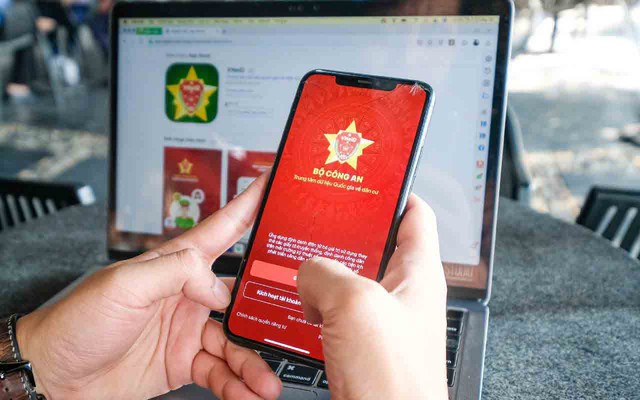
There is another situation of luring students to install applications to identify them when taking exams.
PHOTO: PROVIDED BY POLICE
Ms. Nguyen Thy (living in Hanoi ) was scammed by a person impersonating Stella Maris Hotel Da Nang and lost her room reservation money. "They also asked me to pay a deposit and then said the transfer content was wrong and forced me to transfer a second time to get a refund. After several promises, I realized I was scammed and had to accept the loss of money," Ms. Thy was indignant.
Previously, Ms. BN (living in Ho Chi Minh City) lost 16 million VND for booking a room in Phan Thiet ( Binh Thuan ) because of a similar scam. When she discovered the scam, the phone number was unreachable and the booking website had disappeared.
Hotel booking scams have been around for quite some time, but many people still fall for them even though the tricks are not new. Especially this time, when summer is coming, the demand for travel increases, and scammers are even more active.
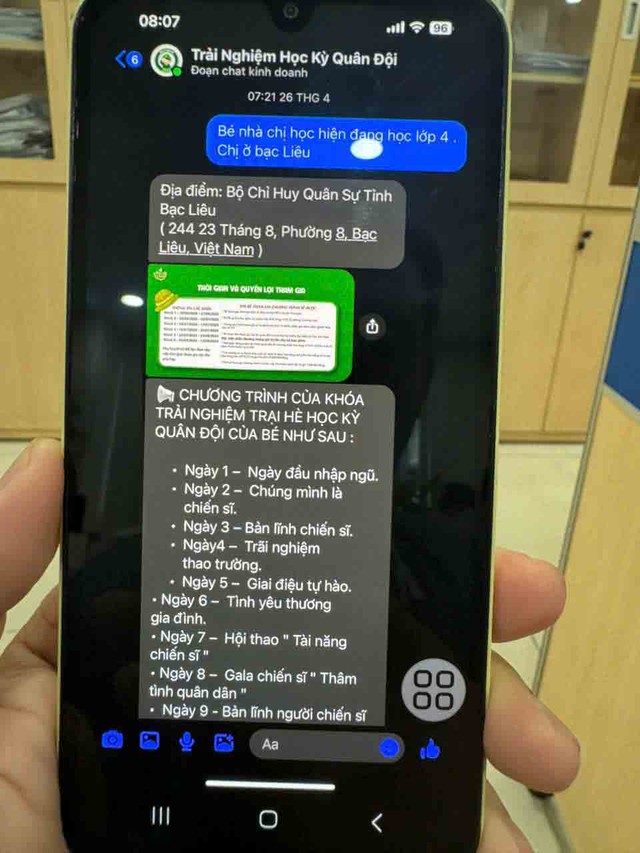
Beware of scams impersonating summer courses
PHOTO: QUANG THUAN
Mr. Ngo Minh Hieu, Director of the Anti-Fraud Project, confirmed that the situation of impersonating websites and fanpages of resorts, hotels and tourist areas is very popular nowadays. Fraudsters use Facebook pages with interfaces similar to the owner's, even the Facebook page has a blue tick to deceive people who need to book travel rooms. In order to increase credibility, the subjects also run Facebook page ads with tens of thousands of followers, have hotline numbers for contact, consultation, create "fake" comments of praise, and offer promotional programs with attractive prices, thereby attracting customers to contact for consultation and transfer deposits. After making a deposit, the fraudsters inform the customer that the content is incorrect and ask for the money to be transferred back so that the "accounting department" can confirm and refund the excess amount. However, after many transfers, the subjects will block communication and appropriate the entire amount of the victim's transfer.
Summer school registration also got scammed
Summer is also the time when the demand for summer courses for children increases. Subjects exploit this psychology to run advertisements and defraud and appropriate property. Recently, Ms. Thanh Thuy (living in District 8, Ho Chi Minh City) went online to search for a military semester for her 14-year-old son. After consulting many sources, she chose a center near her home with competitive costs and many attractive activities. She was guided by a consultant to join a chat group on the Telegram application to complete the early registration procedures, receive incentives...
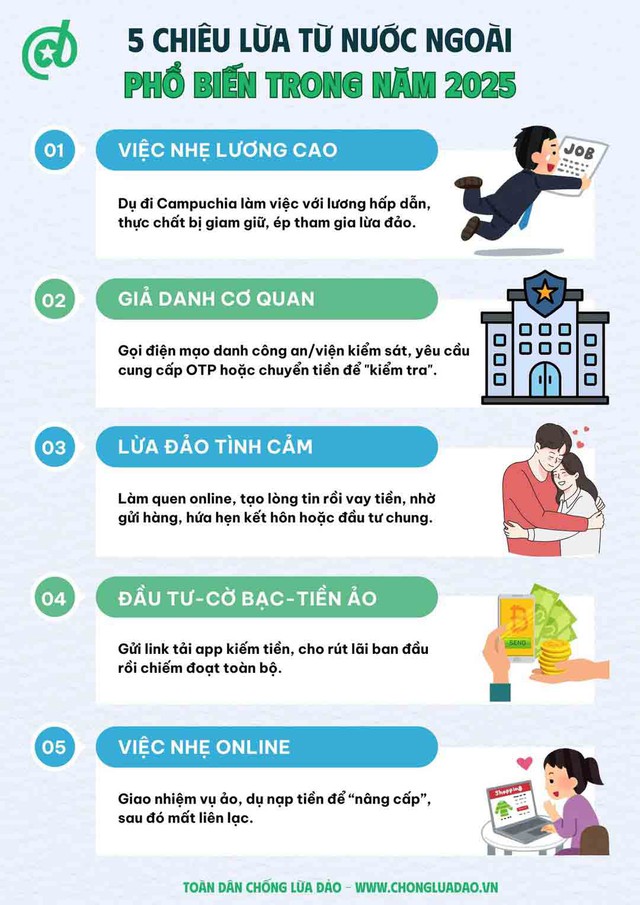
5 common online scams today
PHOTO: CHONGLUADAO.VN
"In order for my child to be able to choose special classes, I was asked to take a survey from the "summer camp companion". After each survey, the parent's credit score increased, and my child had a higher chance of receiving incentives. Initially, the surveys only required a deposit of a few hundred thousand VND, and upon completion of the task, the money would be refunded. However, when I saw that the amount of the subsequent surveys was higher, I doubted the request for a refund of the deposit, so the consultant persuaded me to continue doing the task. But when he saw that I definitely did not believe him and asked to come to the office to ask for clarification, this employee blocked the communication," Ms. Thuy said.
In recent days, police agencies in several localities have warned about this form of fraud. The Ministry of Public Security has also sent SMS messages to mobile subscribers to raise people's awareness. Specifically, there is currently a situation where criminals create websites and Facebook pages impersonating universities and training centers, advertising semester training courses, military and police summer camps, etc. for children to approach interested parents and entice them to deposit money to participate in order to appropriate property. The police agency recommends that people should be vigilant, only register to participate and transfer money when they have clearly understood the information of the organizing unit.
Similarly, with the situation of fraudulent hotel bookings, airline tickets, cheap bus tickets, etc., the authorities recommend that when booking rooms on online platforms, people should carefully check the website address, have a security certificate (lock icon in the upper left corner of the browser) and have a clear address. Proactively contact the hotel directly before paying through the contact information on the official website such as hotline number or send a direct email to verify information about the room and service; do not follow requests or instructions to transfer money to the subjects for reasons such as incorrect text message syntax, money being stuck on the system, etc. Absolutely do not download strange applications or click on unknown links from third parties. Only book rooms through reputable platforms because they have payment protection systems and refund policies if problems occur.
Beware of scams updating level 2 electronic identification of university admissions records
On May 12, the Department of Cyber Security and High-Tech Crime Prevention and Control said that it had discovered a situation where some subjects took advantage of the peak time before the entrance exam for the first grade, grade, exam, and capacity assessment test at schools to impersonate local police officers, asking parents to update their children's level 2 electronic identification in order to promptly adjust, supplement, and complete the application within the day, avoiding cases of "incorrect" registration information, leading to delays in exam procedures.
These subjects even use the trick of threatening to "affect the future" of their children to sow panic and anxiety among parents, gradually luring them into the "trap" they set. The subjects ask parents to make video calls with a background of many people dressed as police officers as if they were working at the headquarters; then lure parents into installing a fake "online public service" application.
During the process, the subject will collect and appropriate bank account information, credit cards, passwords, OTP codes and record biometric images (take photos/videos of facial recognition) to appropriate money in the parent's bank account.
Source: https://thanhnien.vn/he-den-lai-ro-lua-dao-du-lich-hoc-them-185250512222120501.htm








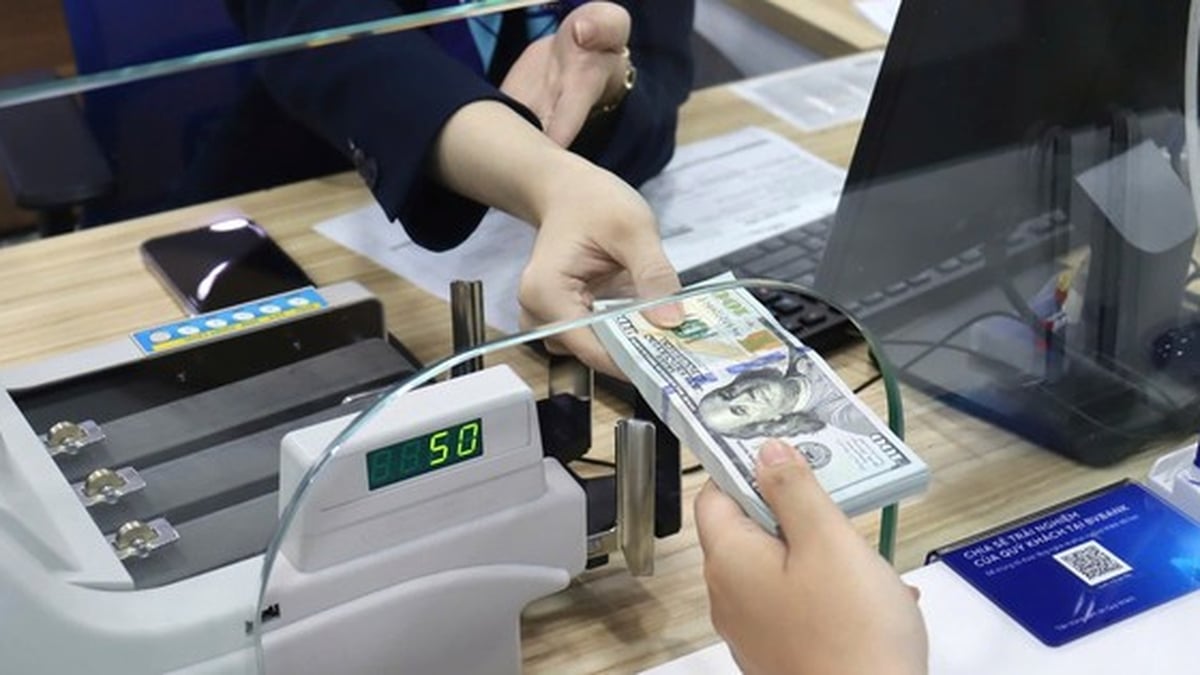
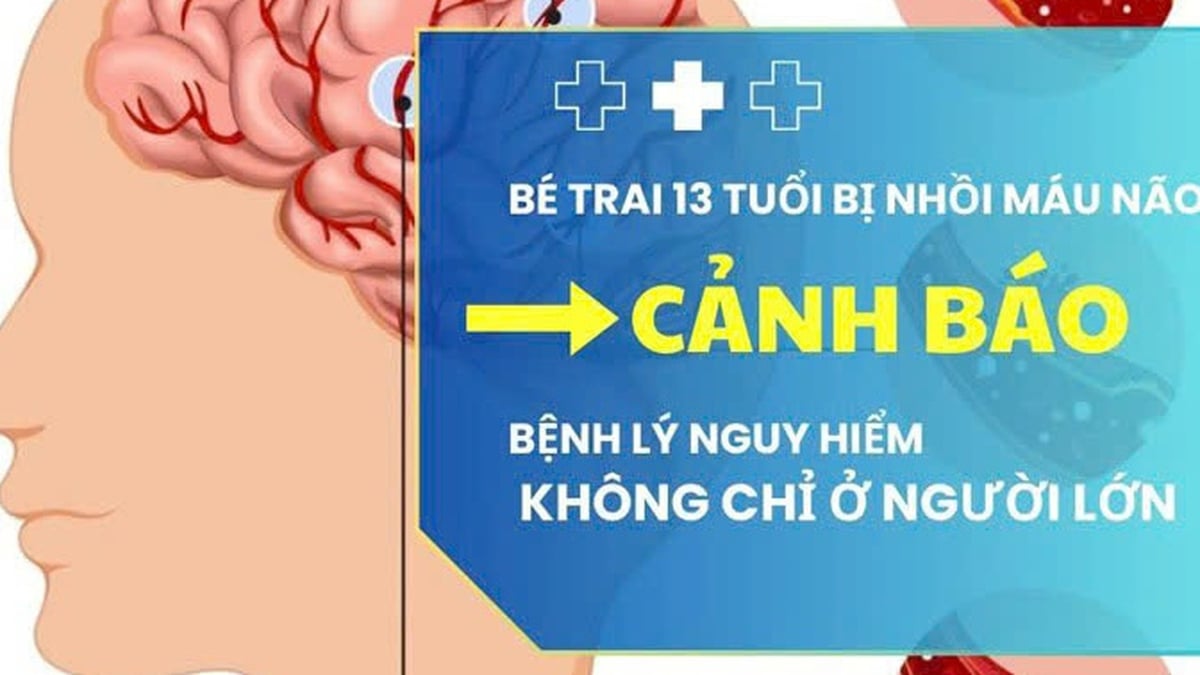








































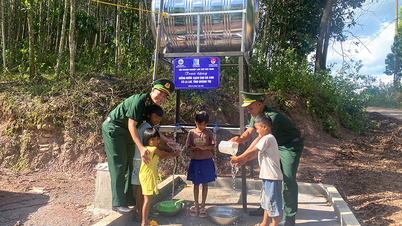












![[Maritime News] More than 80% of global container shipping capacity is in the hands of MSC and major shipping alliances](https://vphoto.vietnam.vn/thumb/402x226/vietnam/resource/IMAGE/2025/7/16/6b4d586c984b4cbf8c5680352b9eaeb0)












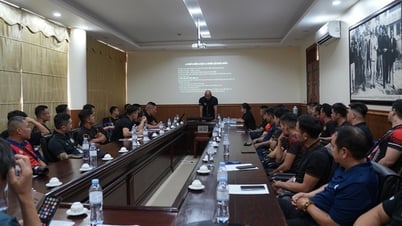























Comment (0)